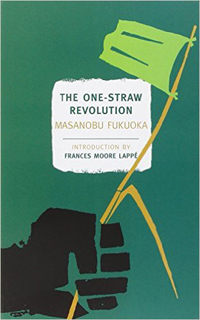


Whether you’re a guerrilla gardener or a kitchen gardener, dedicated to slow food or simply looking to live a healthier life, you will find something here-you may even be moved to start a revolution of your own. Over the next three decades he perfected his so-called “do-nothing” technique: commonsense, sustainable practices that all but eliminate the use of pesticides, fertilizer, tillage, and perhaps most significantly, wasteful effort. Trained as a scientist, Fukuoka rejected both modern agribusiness and centuries of agricultural lore. It is an inspiring, necessary book about agriculture because it is not just about agriculture.” As Wendell Berry writes in his preface, the book “is valuable to us because it is at once practical and philosophical. At the same time, it is a spiritual memoir of a man whose innovative system of cultivating the earth reflects a deep faith in the wholeness and balance of the natural world. His writings - commonsensical, slightly exasperated and always inspiring - are one of the essential texts of the organic growing movement."Call it “Zen and the Art of Farming” or a “Little Green Book” Masanobu Fukuoka’s manifesto about farming, eating, and the limits of human knowledge presents a radical challenge to the global systems we rely on for our food.

The man is a legend among permaculture types, no-diggers, forest farmers and legions of other organic and sustainable devotees, not only because of his do-nothing approach but also because his message is one of deep reverence for our astonishing world.

His farm became a gathering place for people from all over the world who wished to adapt his ways to their own local cultures. Equal parts farmer and philosopher, Fukuoka is recognized as one of the founding thinkers of the permaculture movement.įukuoka perfected his so-called "do-nothing" technique, a way of farming that seeks to work with nature rather than make it over through increasingly elaborate-and often harmful -methods. He was the oldest son of a rice farmer who was also. It is also the memoir of a man whose spiritual beliefs underpin and inform every aspect of his innovative farming system. About the Author, Masanobu Fukuoka (19132008) was born and raised on the Japanese island of Shikoku. It is a call to arms, a manifesto, and a radical rethinking of the global systems we rely on to feed us all. Masanobu Fukuoka's book about growing food has been changing the lives of readers since it was first published in 1978.


 0 kommentar(er)
0 kommentar(er)
